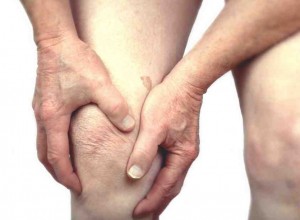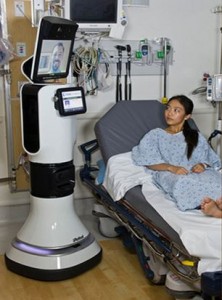June 27th, 2016 by Dr. Val Jones in Health Policy, Opinion
1 Comment »
 Most hospitals have slim margins, and budgets are set based on anticipated average patient reimbursement at Medicare rates. Some private insurers pay higher rates than Medicare, and the differential is often used to offset the cost of treating Medicaid patients. Medicaid reimburses at about half what Medicare pays, which is usually not enough to break even. Out of financial necessity, Medicaid patients are often given limited access to care and services. This is done in some subtle and some not-so-subtle ways. In a recent conversation with an orthopedist friend of mine, he confided in me candidly:
Most hospitals have slim margins, and budgets are set based on anticipated average patient reimbursement at Medicare rates. Some private insurers pay higher rates than Medicare, and the differential is often used to offset the cost of treating Medicaid patients. Medicaid reimburses at about half what Medicare pays, which is usually not enough to break even. Out of financial necessity, Medicaid patients are often given limited access to care and services. This is done in some subtle and some not-so-subtle ways. In a recent conversation with an orthopedist friend of mine, he confided in me candidly:
“Some of my colleagues in private practice can’t pay their office overhead if they treat Medicaid patients. So we see poor people with severely arthritic joints left in pain at home. In addition, with bundled payments, the surgeon gets a fixed amount for the patient’s operation and recovery. What incentive is there to send the patient to a rehab facility? It just takes money away from the surgeon. So the poor have to suffer with very long wait times to see someone who will operate on them, and then afterwards they’re on their own for recovery. Patients who go straight home are at higher risk of falling and may have much poorer outcomes. Surgeons get financial incentives for good outcomes, so it becomes a double disincentive to treat Medicaid patients. You don’t get enough for the operation, and you’re likely to get penalized for their poorer outcomes. Some surgeons I know wont touch a patient with Medicaid for any elective procedure. I have ethical problems with that – so I work at a non-profit hospital where we treat everyone. But I have to do higher volume to break even. I work 90 hours a week and barely see my family. I don’t know how much longer I can do it.”
It is common practice among nursing homes to have a limited number of “Medicaid beds.” The facility simply declines to admit more than 20% of patients with Medicaid. I hear case managers on the phone all day long, looking for a post-acute care facility who will accept a Medicaid patient. For the few non-profit facilities who don’t turn them away, deep financial costs are incurred as they struggle for survival.
The reality is that Medicaid rates are so low that having this insurance is not much better than none at all. As I’ve explained previously in the outpatient world (see an example of an insanely low Medicaid reimbursement for eye care), Medicaid is tantamount to charity care. The news that 21.3 million Americans might receive Medicaid coverage in the next decade should not be hailed as a leap forward. As I see it, that’s just a larger group of people with debilitating arthritis who can’t get hip and knee replacements and are left to suffer in pain at home.
October 21st, 2013 by Dr. Val Jones in Opinion
9 Comments »

A "Medical Service Provider"
As I sat in my orthopedist’s exam room, the discussion quickly turned from my chief complaint to his: “I don’t know why I’m doing this anymore,” he said. “Medicine is just not what it used to be, and I don’t enjoy my work anymore. The bureaucracy and regulations are bad enough, but what really gets me is the hostility. My patients are chronically angry and mean. The only comfort I get is from talking to other doctors. Because they all feel the same way.”
Perhaps this sentiment strikes you as the spoiled musings of a physician who is lamenting his demotion from “god” to “man” – reflecting the fundamental change in the public perception of doctors that has occurred over the past ~50 years. Or maybe you wonder if this surgeon’s patients are mean because he is a bad doctor, or isn’t respectful of their time? Maybe he deserves the hostility?
I’ve found this particular surgeon to be humble, thoughtful, and thorough. He is genuinely caring and a proponent of conservative measures, truly eager to avoid surgical procedures when possible. He is exactly what one would hope for in a physician, and yet he is utterly demoralized. Not because of the hours of daily documentation drudgery required by health insurance and government regulators, but because the very souls he has been fighting to serve have now turned on him. Their attitudes are captured in social media feeds on every major health outlet:
Doctors? I no longer afford that kind of respect: I call them “medical services providers.” They and their families and the medical cabal created this mess when they got control of med schools so that the wealth of a nation would remain in the hands of a few medical elites and their families. The very notion that doctors are smarter, more productive, more anything than others is ludicrous. They are among the worst sluff-offs of our society, yet the richest at the same time. It is an unreal world they have created themselves and they are now watching the natural outcome of such a false system.
The very best physicians have always been motivated primarily by the satisfaction of making a difference in their patients’ lives. That drive to “help others” is what makes us believe that all the sacrifices are worth it – the years of training, the educational debt, the lack of sleep, the separation from family, the delay (and sometimes denial) of becoming a parent, the daily grind of administrative burden, the unspeakable emotional toll that death and disease take on your heart… All of that is offset by the joy of changing and saving lives. But when that joy is taken from you, what remains is despondency and burn out.
What patients need to realize is that they have been (and still are) the primary motivator of physician job satisfaction. Patients have the power to demoralize us like no one else – and they need to take that power very seriously. Because if negative attitudes prevail, and hostility spreads like a cancer in our broken system, the most caring among us will be the first to withdraw.
And in the end all that will be left is “medical service providers.”
December 10th, 2011 by Berci in Research, Video
1 Comment »

It would be fantastic to use 3D printers to produce bone replacements:
Now, Washington State University engineers are unveiling a unique implementation of the tech that could aid in the regrowth of damaged or diseased bones. Utilizing a ceramic compound, the group’s optimized ProMetal 3D printer builds dissolvable scaffolds coated with a plastic binding agent that serve as a blueprint for tissue growth. The team’s already logged four long years fine tuning the process, having already achieved positive results testing on rats and rabbits, but it appears there’s still a ways to go — about 10 -12 years, according to the project’s co-author Susmita Bose — before orthopedic and dental surgeons can begin offering “printed” bone replacements.

*This blog post was originally published at ScienceRoll*
August 6th, 2011 by Felasfa Wodajo, M.D. in News
1 Comment »

 The explosive growth of medical applications for smartphones, launched by the debut of the innovative Apple iTunes App store in 2008, promises to fundamentally change the physician’s tool set. While many specialties have always been heavily dependent on technology, such as radiology and cardiology, the ubiquity of these small, interconnected computers means that every physician will soon have access to a broad array of software and hardware to help them perform their daily work.
The explosive growth of medical applications for smartphones, launched by the debut of the innovative Apple iTunes App store in 2008, promises to fundamentally change the physician’s tool set. While many specialties have always been heavily dependent on technology, such as radiology and cardiology, the ubiquity of these small, interconnected computers means that every physician will soon have access to a broad array of software and hardware to help them perform their daily work.
At iMedicalApps.com, we have been reviewing the most interesting medical apps on the market today as well as watching for trends in mobile medical technology. The most popular categories thus far have been clinical reference and utility apps. Some of the largest download numbers have been for apps that provide drug and disease reference information, such as the encyclopedic Medscape app, or medical calculators.
However, more targeted apps that are specialty specific are slowly coming on the market. Some early ones, not surprisingly, Read more »
*This blog post was originally published at iMedicalApps*
July 5th, 2011 by GarySchwitzer in News, Research
No Comments »

The Spine Journal has published a special June issue focusing on Medtronic’s INFUSE product, or rhBMP-2, a bone growth product commonly used in spine fusion surgeries. A journal news release states:
A critical review of 13 industry-sponsored studies on a spine surgery product found that the actual risk of adverse events was 10 to 50 times the estimates originally reported. The product in question is recombinant bone morphogenetic protein-2 (rhBMP-2), a controversial synthetic bone growth factor often used as a bone graft substitute in spine fusion surgeries. This eye-opening study, “A critical review of rhBMP-2 trials in spinal surgery: emerging safety concerns and lessons learned” is included in a special BMP-focused issue of The Spine Journal.
The comprehensive review found four main areas of concern among the 13 original industry-sponsored studies:
• Conflicts of interest were either not reported or were unclear in each study. Read more »
*This blog post was originally published at Gary Schwitzer's HealthNewsReview Blog*
 Most hospitals have slim margins, and budgets are set based on anticipated average patient reimbursement at Medicare rates. Some private insurers pay higher rates than Medicare, and the differential is often used to offset the cost of treating Medicaid patients. Medicaid reimburses at about half what Medicare pays, which is usually not enough to break even. Out of financial necessity, Medicaid patients are often given limited access to care and services. This is done in some subtle and some not-so-subtle ways. In a recent conversation with an orthopedist friend of mine, he confided in me candidly:
Most hospitals have slim margins, and budgets are set based on anticipated average patient reimbursement at Medicare rates. Some private insurers pay higher rates than Medicare, and the differential is often used to offset the cost of treating Medicaid patients. Medicaid reimburses at about half what Medicare pays, which is usually not enough to break even. Out of financial necessity, Medicaid patients are often given limited access to care and services. This is done in some subtle and some not-so-subtle ways. In a recent conversation with an orthopedist friend of mine, he confided in me candidly:

















